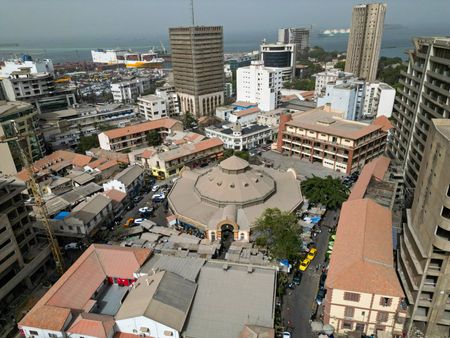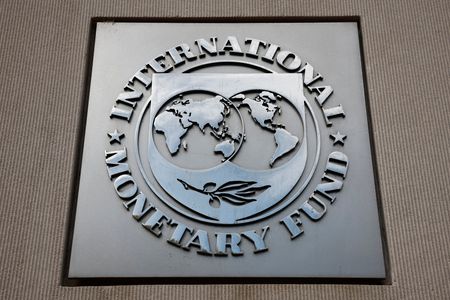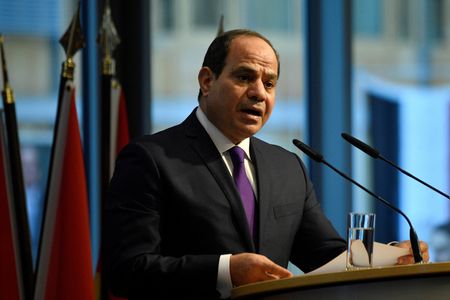DAKAR (Reuters) -Senegal has begun recalculating its gross domestic product using an updated base year in a move that could result in an improvement in its debt metrics, its finance ministry said on Tuesday in response to a credit rating downgrade.
Senegal revealed last year it had billions of dollars of previously unreported debt, leading the International Monetary Fund to suspend its lending programme and triggering a series of ratings downgrades and a sharp selloff in its government bond market.
The IMF is awaiting final details on the extent of the misreporting and how it was able to take place before possibly restarting its programme with the West African nation.
“While the (Senegalese) authorities have expressed their intention to rebase GDP, this is not a prerequisite for progressing in our engagement,” said the IMF via a spokesperson. “The timing of a potential Board meeting will depend on the progress made in resolving the misreporting issue and reaching agreement on key policy measures.”
The government has been working on a “GDP rebasing exercise” the finance ministry said in a statement, the results of which are expected to be published in the coming months.
“This exercise, which has been in preparation for some time, will provide a more accurate picture of the size of the Senegalese economy by adopting a scope aligned with its level of economic development,” the ministry said, without providing an estimate of the likely revision.
Updating the base year that a country uses to calculate its economic output is an internationally accepted practice. It is meant to take into account new emerging industries and other developments, but it can raise questions among economists when it results in big debt-to-GDP improvements.
The finance ministry statement was responding to a credit rating downgrade by S&P late on Monday, in which the agency warned that the government’s debt-to-GDP ratio had jumped to almost 120%.
S&P debt figures had not taken account of the potential impact of the ongoing rebasing exercise, however, the finance ministry said.
Senegal’s international bonds, which have lost over a quarter of their value since September’s hidden debt announcements, rose following the government’s response to the ratings downgrade.
The country’s 2033 maturity climbed by almost 1.6 cents to 66 cents on the dollar – a third below its face value.
Senegal’s finance ministry did not respond to requests for comments on the GDP rebasing plan.
Some observers remained sceptical of the long-term effectiveness of the exercise.
“It will flatter the debt-to-GDP ratio but gross financing needs will remain elevated,” said Kevin Daly, portfolio manager for emerging debt at Aberdeen Investments in London.
Aurelie Martin, emerging market fixed income analyst at Ninety One, said Senegal’s long-term stability will also require it to ensure revenue and foreign exchange generation.
“A higher GDP mechanically results in a lower debt-to-GDP ratio, which is undoubtedly positive. It is not, however, a silver bullet,” she said.
(Reporting by Anait Miridzhanian in Dakar, Duncan Miriri in Nairobi and Libby George in London; Editing by Marc Jones, Joe Bavier and Matthew Lewis)









